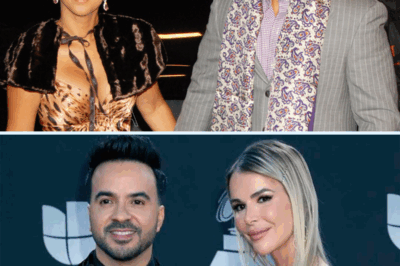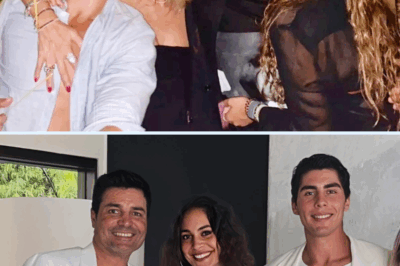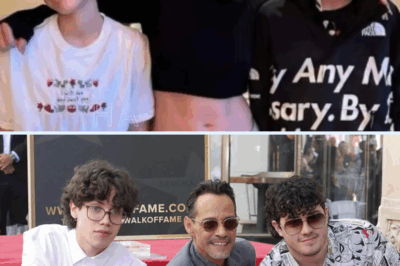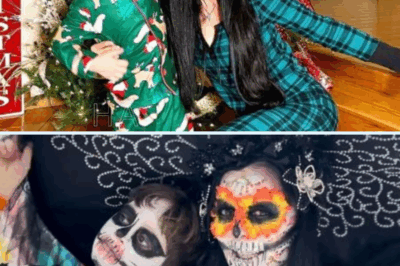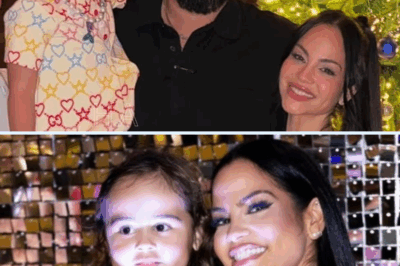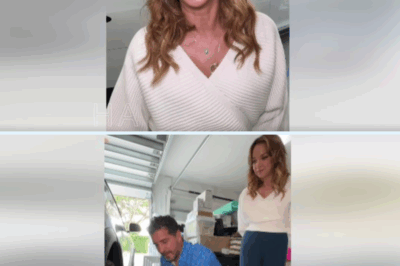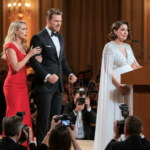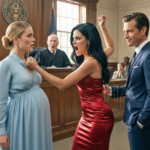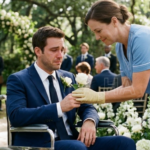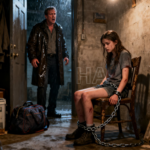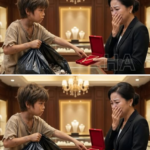
Seventeen-year-old Darius Williams stood at the corner of Fifth and Maine, clutching a crumpled $5 bill in his trembling hand. The rain hammered down like bullets, turning the empty intersection into a river. His stomach screamed from eighteen hours without food, but his mind was focused on something else: survival. That $5 was all he had left until payday, and it was supposed to buy breakfast for him and his little sister, Maya. Every choice mattered now.
Darius’s day had started like every other—a battle between impossible and unthinkable. With the electricity cut off, he woke to his internal clock, the same one trained by months of hardship. The apartment was freezing. Maya, only twelve, slept curled on their shared mattress, smaller under the thin blanket their grandmother left them. Darius checked on her, counting half a sleeve of crackers and a packet of instant oatmeal. He’d learned to stretch every meal, every dollar, every ounce of hope.
School was Darius’s sanctuary. He walked two miles to Jefferson High, avoiding puddles in his worn-out Jordans. AP Calculus was his escape. Math made sense; hunger did not. His teacher, Mrs. Patterson, praised his perfect scores and mentioned a summer program at MIT for students like him. But Darius knew those programs were for kids who never counted quarters for lunch money.
Lunch period found him in the library, pretending to study while classmates ate. Sometimes Mrs. Kim, the librarian, left half a sandwich on the desk near him. They both pretended it was a coincidence. Darius tutored struggling students for free, feeling that helping others dulled his hunger more than any food could.
After school, he worked a four-hour shift at Brooks’s Corner Market, earning $9 an hour under the table. Mr. Brooks, who knew more than he let on, often left a bag of day-old sandwiches for Darius. Charity disguised as leftovers. That night, Darius split their last oatmeal packet with Maya, giving her the bigger portion. She talked about becoming an engineer, her dreams as bright as the candles they used for light.
As Darius studied scholarship applications by streetlight, he thought about his grandmother’s compass keychain, her last gift. “Always point toward doing right,” she used to say. Even when it cost everything.
The next evening, after another long shift, Darius counted his pay: $47.63. Rent was $42 behind, leaving him $5.63 for food until next week. The plan was simple—one sandwich, split with Maya, crackers for the rest.
But as he stepped outside, the storm hit with a vengeance. Streets flooded. His thin jacket felt like tissue paper. That’s when he saw the old man at the bus stop—shivering, soaked, looking lost and fragile. Darius’s first instinct was to walk on. He couldn’t save everyone. But his feet slowed. Some lessons went deeper than hunger.
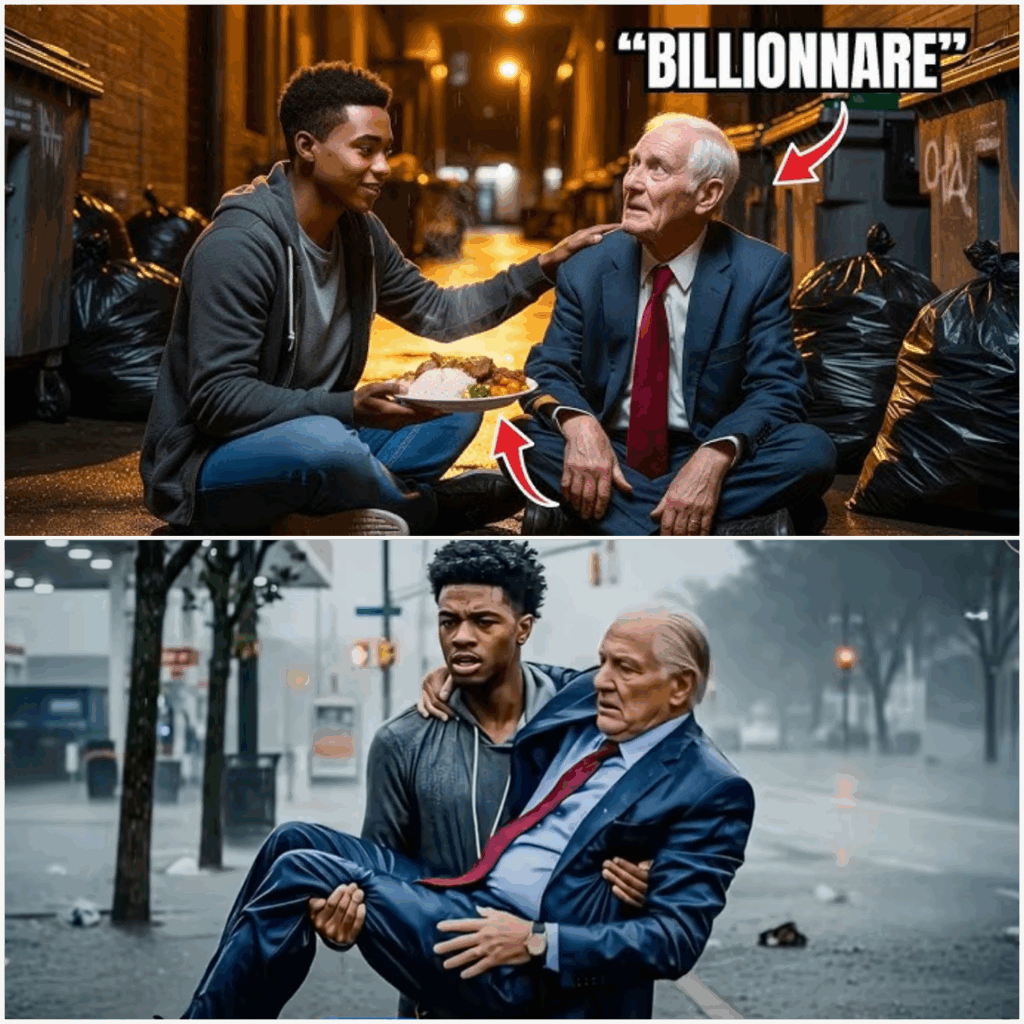
The man’s clothes were expensive but waterlogged. His hands shook uncontrollably, lips edging toward blue. “Sir, are you okay?” Darius asked. The old man looked up, confusion clouding his eyes. He couldn’t remember his phone number or where he was supposed to be. Darius recognized hypothermia—the same signs he’d seen caring for his grandmother.
Emergency vehicles couldn’t reach them through the flooded streets. The nearest hospital was three miles away, but there was a 24-hour gas station two blocks over. Darius helped the man up, surprised by how frail he was. “When someone needs help, you help,” he said, echoing his grandmother’s words.
Inside the gas station, the warmth helped. Darius wrapped his own jacket around the man, whose name was Harold. He hadn’t eaten in over a day. Darius looked at the food selection. The turkey sandwich cost $4.99, coffee 50 cents. He could afford one or the other, not both, and definitely not food for Maya tomorrow. But Harold needed calories now.
“Ahmed, can I get that turkey sandwich and a large coffee?” Darius handed over his last $5.63, left with 13 cents and a hollow feeling in his stomach. Harold watched, his confusion clearing. “Son, you don’t have to—”
“When someone needs help, you help,” Darius repeated, steadying Harold’s hands as he ate. Color returned to Harold’s face. His shivering calmed.
“What’s your name?” Harold asked.
“Darius Williams. I live a few blocks over with my sister, Maya.”
“Parents?”
“Passed when I was fourteen. We’ve been managing.”
Harold studied Darius with a strange intensity. “You gave me your last money, didn’t you?”
“We’ll figure it out tomorrow,” Darius said, uncomfortable.
“Why?” Harold pressed.
Darius touched his grandmother’s compass. “Because if you can help someone, you help someone. That’s what family is. That’s what being human is.”
Outside, emergency sirens cut through the storm. As paramedics loaded Harold into the ambulance, he called out, “Darius Williams! I won’t forget this. I won’t forget you.”
Darius stood in the parking lot with 13 cents and no idea that his life had just changed forever.
The next morning, reality hit hard. No money for breakfast meant splitting Maya’s school lunch. She pushed the bigger half toward him. “You walked through a storm last night helping someone. You need more energy than me.” Sometimes her wisdom scared him.
At Brooks’s Market, Mr. Brooks told Darius a fancy man had come asking about him. At school, Mrs. Patterson announced an anonymous $500 donation to Darius’s college fund. Maya’s field trip was suddenly paid for, including lunch. Someone called the office, wanting to sponsor “Maya Williams, future engineer.”
Darius pieced it together: Harold Cromwell. He searched the library computer. Cromwell Foundation—$2.8 billion in assets, offices in twelve states. Harold Cromwell, founder and chairman, philanthropist, former Fortune 500 CEO.
His phone buzzed. “Darius, this is Harold. How are you and Maya doing today? HC.” Darius stared at the message, his world tilting. He answered Harold’s call, his voice clear and confident.
“First, how are you feeling?” Harold asked.
“I’m fine, sir. But you?”
“The hospital released me this morning. Darius, I need to ask you something. Have you looked up my foundation yet?”
“Yes, sir. I was confused about some things happening today.”
Harold laughed warmly. “The college fund, Maya’s field trip, my investigator asking questions. Darius, can you sit down?”
Darius slid to the floor in the library. “I’m sitting.”
“What happened the other night? You saved my life. It wasn’t the first time our families met. Your father, Michael Williams, saved my son’s life in Afghanistan. My son David was trapped under enemy fire. Your father ran through it, pulled him to safety. David lived because of your father’s courage, but Michael died two days later.”
Darius’s world stopped. Harold explained he’d tried for six years to find Darius and Maya, to honor Michael’s sacrifice. “The system failed you. But when you helped me, I knew you were Michael Williams’s son. You have your father’s heart.”
Harold revealed he’d waited to see Darius’s character—who he was when he thought no one important was watching. “You help because it’s right, not because reward is guaranteed.”
A knock echoed on Darius’s apartment door. “Good, because I’m standing outside with Maya, and I think she’s about to have some questions you’ll want to help me answer.”
Darius sprinted home, lungs burning. He found Harold talking with Maya, who was animatedly explaining engineering principles. Harold listened with genuine interest. When Maya went inside to do homework, Harold sat with Darius on the steps.
“I want to make you both an offer,” Harold said, opening a leather briefcase. “Full scholarship to any university you choose. All expenses covered. Maya’s education, too, straight through graduate school. Mentorship program—summers working with me, learning how to run a foundation. New apartment, living allowance, healthcare, everything you need.”
Darius stared at the documents, overwhelmed. “Why?”
“Six years ago, I made a promise at your father’s grave. His sacrifice would mean something. His children would have every opportunity he dreamed of. Let me keep that promise.”
Darius thought about his grandmother’s compass, his father’s courage, Maya’s dreams. “Yes, sir. Yes, we accept.”
Six months later, the transformation was complete. Darius thrived at Harvard, Maya at Lincoln Academy. The Cromwell Foundation invested $500,000 in their old neighborhood—Brooks’s Market expanded, the community center flourished, graduation rates soared. The ripple effects multiplied. Darius’s story was picked up by national news. Harold’s character-first approach created scholarships nationwide.
Maya’s YouTube channel, “Engineering for Everyone,” inspired students around the world. The old neighborhood buzzed with hope. The Michael Williams Community Center plaque read: “Where character creates change.”
At the dedication, Darius spoke: “When we invest in character, we invest in everyone’s future.”
Years later, Darius stood in the same gas station, now evaluating another student for a scholarship. He watched a teenage boy give his sister the bigger portion of a candy bar. Character recognizes character.
Because sometimes the last $5 you give away doesn’t just save a life—it changes the world.
News
Fonsi solicita respeto para su esposa e hijos al hablar sobre Adamari López
Luis Fonsi, conocido por su exitoso tema «Despacito», habló en una entrevista con Yordi Rosado sobre lo agotador que le…
Lorenzo, Hijo de Chayanne, Revoluciona el Mundo de la Moda con STAMOS BIEN
Isadora y Lorenzo, los hijos de Chayanne, están trazando caminos distintos hacia la independencia y el éxito, cada uno siguiendo…
El cambio de Max, el hijo más discreto de JLo y Marc Anthony, sorprende a todos
Jennifer Lopez, la reconocida cantante y actriz, es madre de los mellizos Emme y Max, fruto de su relación con…
VIDEO: Maribel Guardia se enoja con su nieto por el GRACIOSO apodo que le tiene
Maribel Guardia ha encontrado consuelo en su nieto, José Julián, quien se ha convertido en una fuente de luz para…
VIDEO: La reaccion de la hija de Natti Natasha al enterarse que su mamá es famosa
La relación entre Natti Natasha y su hija, Vida Isabelle, ha cautivado a los seguidores de la artista dominicana. Recientemente,…
VIDEO: Adamari Lopez compartió como su ‘esposo’ la salvo de quedar botada
Recientemente, la presentadora puertorriqueña Adamari López compartió en sus redes sociales una experiencia cotidiana que capturó la atención de sus…
End of content
No more pages to load

